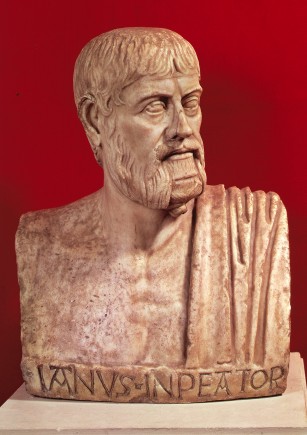| Heresy
concerning the Trinity, maintaining that Christ was created by and
subordinate to God the Father. |
 |
|
Roman
Emperor Julian (361-370) held
Arian views
|
This teaching originated
with Arius, a presbyter of Alexandria. Arius argued that the Word of God
(Logos) in Christ was not co-eternal with God, but subordinate to God
the Father and created by God the Father. Opponents of Arius, led by Athanasius
of Alexandria, declared that this was to deny the divinity of the Word
of God and of Jesus himself. Arianism was rejected by the Council
of Nicea I in 325. A statement of this council rejected the teaching
that Jesus was created or any less divine than the Father himself. It
declared that Christ was of one substance (homoousios)
with God the Father. Arianism was not, however, extinguished by this decree.
With the help of intermittent imperial patronage it endured for some time.
It was again condemned by the Council of
Constantinople I in 381. Arianism's last stronghold was in Europe
where it survived until the conversion of the Franks to Catholicism in
the late fifth century doomed it to extinction.
|